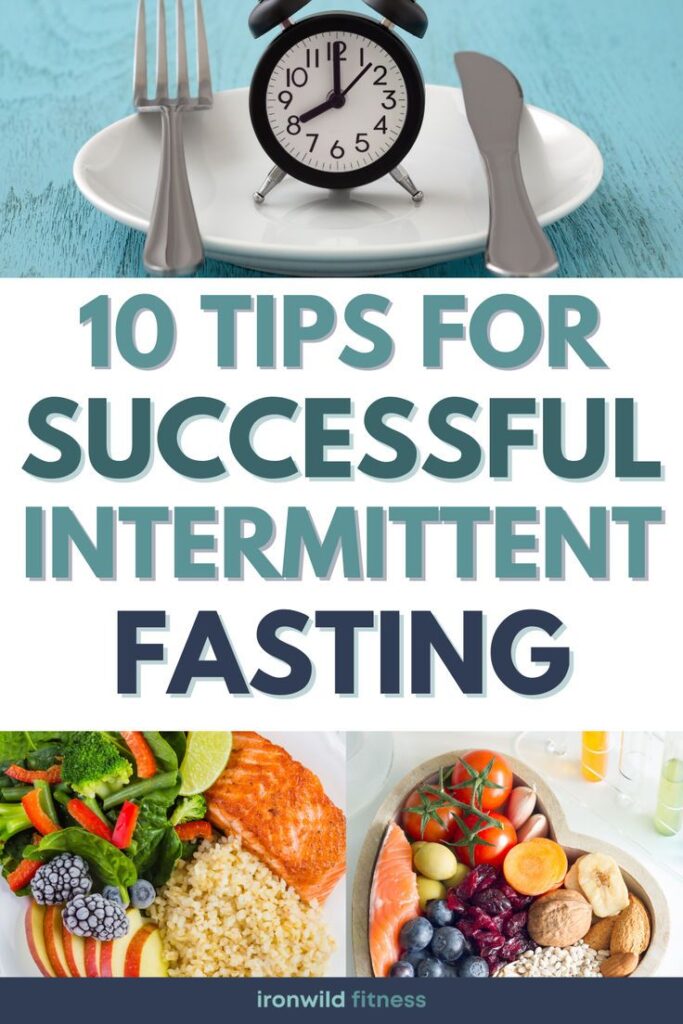Intermittent fasting (IF) has gained immense popularity as a lifestyle choice for improving health and achieving weight loss goals. Unlike traditional dieting, intermittent fasting emphasizes when to eat rather than what to eat. This eating pattern alternates between periods of fasting and eating, offering various health benefits supported by scientific research. Whether you’re exploring intermittent fasting for weight loss, improved metabolism, or general well-being, understanding its principles is crucial for success.

What is Intermittent Fasting?
Intermittent fasting is not a diet in the conventional sense but a strategic eating pattern. The primary goal is to divide the day or week into periods of eating and fasting. During fasting periods, you abstain from consuming any calories, while staying hydrated with water, tea, or coffee without additives. The eating periods allow you to consume meals normally.
Popular intermittent fasting methods include:
- 16/8 Method: Fasting for 16 hours and eating within an 8-hour window, such as noon to 8 PM.
- 5:2 Diet: Eating normally for five days a week and consuming 500-600 calories on two non-consecutive days.
- Eat-Stop-Eat: A 24-hour fast once or twice a week.
- Alternate-Day Fasting: Fasting every other day, with limited calories or none on fasting days.
Each method offers flexibility, allowing individuals to choose one that fits their lifestyle and goals.
The Science Behind Intermittent Fasting
The human body is designed to thrive during periods of fasting, reflecting the eating habits of ancient hunter-gatherer societies. During fasting, the body undergoes several changes at the cellular and hormonal levels:
- Insulin Levels Drop: Lower insulin levels encourage fat burning.
- Cellular Repair: Fasting triggers autophagy, a process where cells remove damaged components.
- Hormone Regulation: Increased norepinephrine levels boost metabolism, enhancing fat breakdown.
These changes make intermittent fasting an effective tool for weight management, reducing inflammation, and improving overall health.
Health Benefits of Intermittent Fasting
Numerous studies highlight the advantages of incorporating intermittent fasting into your routine:
1. Weight Loss and Fat Reduction
Intermittent fasting naturally reduces calorie intake by limiting the eating window. Additionally, it enhances metabolism by increasing hormone-sensitive lipase and norepinephrine, both of which promote fat burning.
2. Improved Insulin Sensitivity
Lower fasting insulin levels and improved insulin sensitivity help reduce the risk of type 2 diabetes. Studies suggest that intermittent fasting can lower blood sugar levels and stabilize glucose metabolism.
3. Heart Health
Fasting positively impacts heart health by lowering blood pressure, cholesterol, triglycerides, and inflammatory markers associated with cardiovascular disease.
4. Brain Function and Longevity
The practice of fasting may increase the production of brain-derived neurotrophic factor (BDNF), supporting brain health and reducing the risk of neurodegenerative diseases like Alzheimer’s. Autophagy also plays a role in longevity by slowing cellular aging.
5. Reduction in Inflammation
Chronic inflammation is linked to many diseases, including cancer and heart conditions. Intermittent fasting has been shown to reduce inflammatory markers in the body.
Intermittent Fasting and Lifestyle Integration
Starting with intermittent fasting can seem daunting, but with the right approach, it becomes an intuitive part of daily life.
Tips for Beginners
- Ease Into It: Begin with a shorter fasting window, such as 12 hours, and gradually extend it.
- Stay Hydrated: Drink plenty of water, and consider herbal teas to stave off hunger.
- Focus on Nutrient-Dense Foods: During eating windows, prioritize whole foods rich in vitamins, minerals, and fiber.
- Listen to Your Body: Hunger pangs are common initially, but over time, they diminish as your body adapts.
What to Eat During Eating Windows
Although intermittent fasting doesn’t dictate food choices, what you consume matters. A diet rich in whole foods, lean proteins, healthy fats, and complex carbohydrates supports sustained energy levels and nutrient needs. Avoid overindulging in processed or sugary foods, which can negate the benefits of fasting.
Challenges and Misconceptions
Common Challenges
- Hunger Pangs: Initially, fasting may cause hunger. Gradual adaptation and hydration can help.
- Social Pressure: Explaining your fasting routine to friends or family may feel awkward. Flexibility helps navigate social events.
- Energy Levels: Early fatigue is common but usually resolves as the body adapts to using fat as fuel.
Misconceptions
- Starvation Mode: Fasting is often confused with starvation. In reality, fasting within appropriate durations does not lead to muscle loss or metabolism slowing.
- Unsuitable for Everyone: Pregnant women, individuals with eating disorders, or those with certain medical conditions should consult a doctor before attempting intermittent fasting.
Success Stories and Testimonials
Many individuals share transformative experiences with intermittent fasting, reporting significant weight loss, enhanced focus, and improved digestion. For example, Sarah, a 35-year-old office worker, found that the 16/8 method helped her lose 15 pounds in three months without sacrificing her favorite foods.
Is Intermittent Fasting Right for You?
While the benefits of intermittent fasting are compelling, it’s not a one-size-fits-all solution. Factors such as age, lifestyle, and health conditions play a significant role in determining its suitability. Consulting a healthcare provider is essential before starting.
Conclusion
Intermittent fasting is a powerful tool for improving health, achieving weight loss, and enhancing overall well-being. Its flexible approach allows individuals to tailor the method to their unique needs, making it sustainable and effective. By understanding the science behind intermittent fasting and integrating it into daily life, anyone can unlock its transformative potential.
Ready to take control of your health? Consider starting your intermittent fasting journey today and discover the benefits firsthand!
AL|Alabama AK|Alaska AZ|Arizona AR|Arkansas CA|California CO|Colorado CT|Connecticut DE|Delaware FL|Florida GA|Georgia HI|Hawaii ID|Idaho IL|Illinois IN|Indiana IA|Iowa KS|Kansas KY|Kentucky LA|Louisiana ME|Maine MD|Maryland MA|Massachusetts MI|Michigan MN|Minnesota MS|Mississippi MO|Missouri MT|Montana NE|Nebraska NV|Nevada NH|New Hampshire NJ|New Jersey NM|New Mexico NY|New York NC|North Carolina ND|North Dakota OH|Ohio OK|Oklahoma OR|Oregon PA|Pennsylvania RI|Rhode Island SC|South Carolina SD|South Dakota TN|Tennessee TX|Texas UT|Utah VT|Vermont VA|Virginia WA|Washington WV|West Virginia WI|Wisconsin WY|Wyoming DC|District of Columbia AS|American Samoa GU|Guam MP|Northern Mariana Islands PR|Puerto Rico UM|United States Minor Outlying Islands VI|Virgin Islands, U.S.